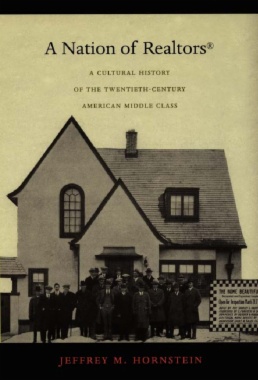How is it that in the twentieth century virtually all Americans came to think of themselves as “middle class”? In this cultural history of real estate brokerage, Jeffrey M. Hornstein argues that the rise of the Realtors as dealers in both domestic space and the ideology of home ownership provides tremendous insight into this critical question. At the dawn of the twentieth century, a group of prominent real estate brokers attempted to transform their occupation into a profession. Drawing on traditional notions of the learned professions, they developed a new identity—the professional entrepreneur—and a brand name, “Realtor.” The Realtors worked doggedly to make home ownership a central element of what became known as the “American dream.” Hornstein analyzes the internal evolution of the occupation, particularly the gender dynamics culminating in the rise of women brokers to predominance after the Second World War. At the same time, he examines the ways organized real estate brokers influenced American housing policy throughout the century.
Hornstein draws on trade journals, government documents on housing policy, material from the archives of the National Association of Realtors and local real estate boards, demographic data, and fictional accounts of real estate agents. He chronicles the early efforts of real estate brokers to establish their profession by creating local and national boards, business practices, ethical codes, and educational programs and by working to influence laws from local zoning ordinances to national housing policy. A rich and original work of American history, A Nation of Realtors® illuminates class, gender, and business through a look at the development of a profession and its enormously successful effort to make the owner-occupied, single-family home a key element of twentieth-century American identity.

